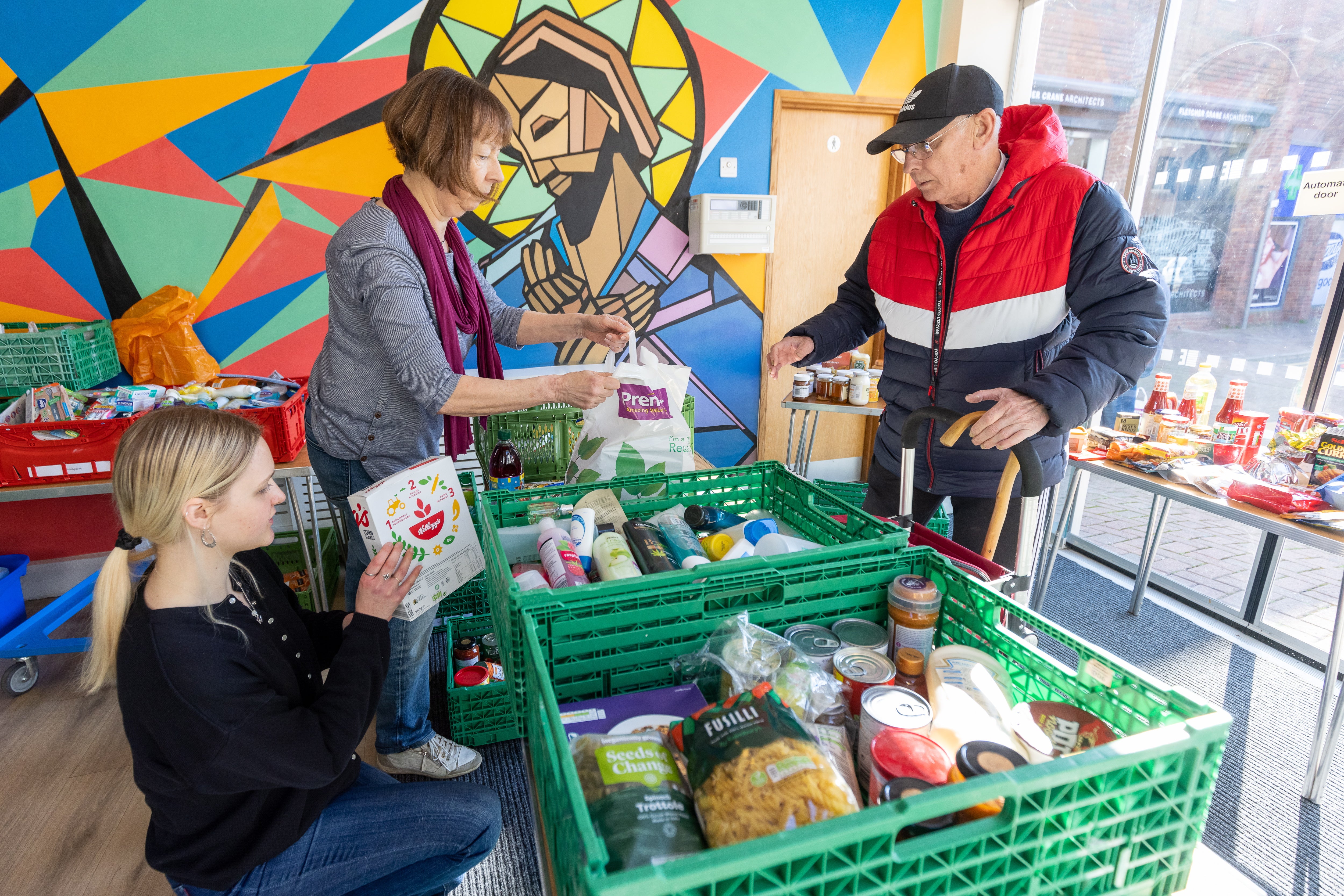‘Shocking reality’: Food banks could close this winter because of energy bills
UK likely to see some charities being ‘forced to stop feeding the hungry’, warns Gordon Brown

Your support helps us to tell the story
From reproductive rights to climate change to Big Tech, The Independent is on the ground when the story is developing. Whether it's investigating the financials of Elon Musk's pro-Trump PAC or producing our latest documentary, 'The A Word', which shines a light on the American women fighting for reproductive rights, we know how important it is to parse out the facts from the messaging.
At such a critical moment in US history, we need reporters on the ground. Your donation allows us to keep sending journalists to speak to both sides of the story.
The Independent is trusted by Americans across the entire political spectrum. And unlike many other quality news outlets, we choose not to lock Americans out of our reporting and analysis with paywalls. We believe quality journalism should be available to everyone, paid for by those who can afford it.
Your support makes all the difference.Food banks and other community groups could close or dramatically cut back on what they offer this winter because of rising energy bills and decreasing donations, a report has warned.
Former Labour prime minister Gordon Brown and the former Archbishop of Canterbury Rowan Williams said the safety net offered by faith groups and other charities was badly “torn”.
“Even churches, which have selflessly offered their heated halls to help vulnerable people stay warm, know they will struggle to pay their own fuel bills,” they said in a forward to a report by Christian think tank Theos.
On terrible choices ahead, Mr Brown and Dr Williams said: “The shocking reality is that this winter, we are likely to see charities being forced to stop feeding the hungry so they can help the starving.”
They added that charities may have to “cut back on support to the poorly housed so they can focus on the fast-rising numbers of homeless, and give up on helping the down-at-heel because their priority has to be the destitute”.
Dozens of food bank and other community hub leaders told Theos of the struggle to keep doors open and services running due to soaring bills, falling donations and the struggle to keep volunteers.
One mosque in Birmingham said it was thinking about reducing its community activity after being told annual energy bills could be hiked from £60,000 to £250,000 a year.
Warning of growing demand, one church volunteer in Glasgow said: “Food insecurity is a massive problem here, and I think a lot of people are worried about what the cost of living increase is going to do to them because they were already struggling.”
The Theos report concluded that there is a risk that some churches and other faith groups will close their services “because they cannot afford to keep the lights on” – warning of “economic and social scars on the community”.
The think tank urged the government to consider a new cap on energy prices for community hubs, a boost in the rate of Gift Aid on donations, as well as tax breaks for volunteering.
The Independent Food Aid Network (Ifan) said last month that 91 per cent of food banks have seen demand for help increase since July, as the cost of living crisis worsened during the autumn.
Around 50 per cent said they may not be able to support everyone who needs help, while 25 per cent have been forced to cut the size of food parcels.
Mr Brown and Dr Williams said they were “waiting to hear” from Rishi Sunak’s government on whether it understands the scale of the problem “and whether there is enough honesty about the problem and enough willingness to find a solution”.
They added: “Britain’s safety net is torn … We dare to hope that it is not torn beyond repair; but that is up to public as well as private vision and generosity.”




Join our commenting forum
Join thought-provoking conversations, follow other Independent readers and see their replies
Comments